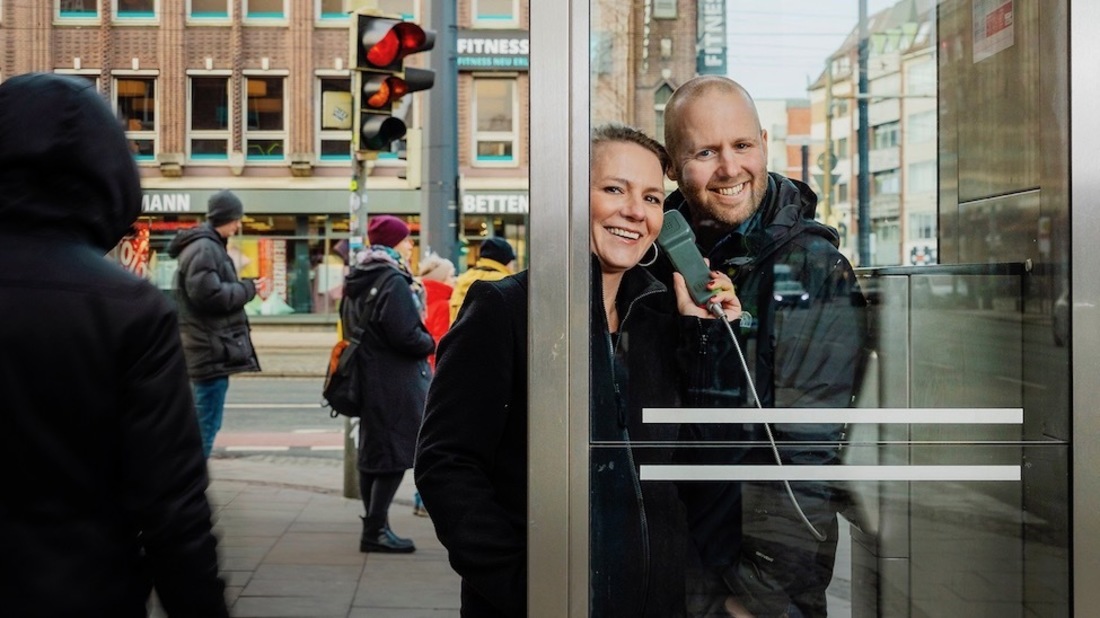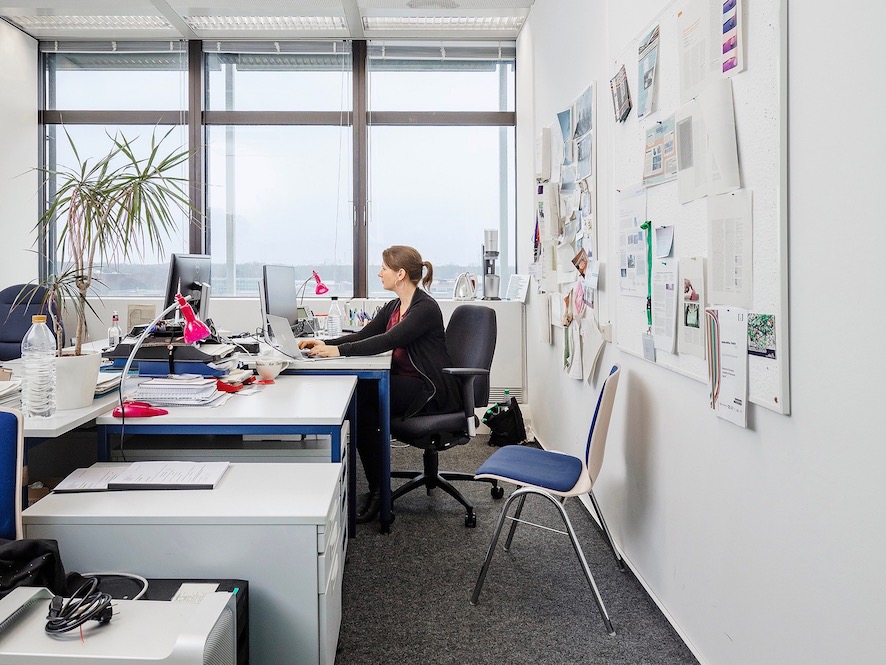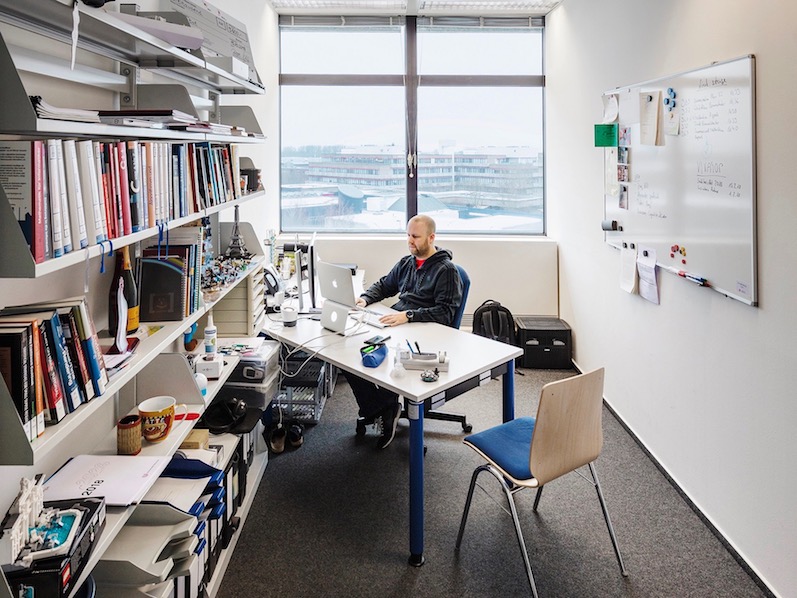
© GfG/Universität Bremen
“For Us, People Are Always the Focus”
How the transfer in the economy is promoted by start-ups: The success of Mr. and Mrs. Wenig.
The University of Bremen and its BRIDGE network have been successfully supporting the founding of start-ups and therefore supporting innovations for society: in the 2018 Gründungsradar of the Stifterverband, they ranked sixth among major higher education institutions in Germany. One example of a successful start-up from the university is the married couple Dr. Nina and Dr. Dirk Wenig, who developed a chat bot for businesses. For their idea, the computer scientists came in first place in the category for “Business Ideas” as part of the Bremen start-up competition CAMPUSiDEEN 2018, a finish endowed with a prize of 3,000 euros.
Their service is called IDA-Bot and enables chat with a technical system, which is intended to support businesses in responding to customer requests in a timely and tailored fashion. The abbreviation “IDA” stands for “intelligent,” “domain-specific,” and “adaptable.” It offers businesses the ability to train an intelligent chat bot on the basis of their own data. IDA-Bot can be used around the clock on the company’s website or in one of the common messenger apps on a smartphone.
IDA-Bot operates using artificial intelligence (AI). “Based on our customers’ data, it compiles answers on its own,” says Nina Wenig. “What’s special about that is that we also offer the company the ability to see what the chat bot has taught itself.” The companies can then monitor the possible answers and, if need be, correct or supplement them. “They should be able to trust that the chat bot provides answers correctly and in their interest,” says the computer scientist. The married couple worked on a prototype and tested it together with various businesses. “We have received plenty of positive feedback to date,” says Dirk Wenig. And, of course, also ideas for improvements that will be incorporated into the further development of the IDA-Bot.

© GfG/Universität Bremen
„Anyone Should Be Able to Create A Chat Bot“
“Our goal is for everyone to be able to create their own chat bot at some point in the future, affordably and without IT skills,” says Nina Wenig. “We first want to approach small and medium-sized enterprises in German-speaking Europe. We believe that they could really use an IDA-Bot,” says Dirk Wenig. The idea for the IDA-Bot came to the couple during the most recent elections for the German Bundestag. They noticed that a few parties were using chat bots that generally did not work very well. “For one party, the chat bot wasn’t even able to tell us who the top candidate was. It must not have occurred to anyone before to teach the bot the right answer. And then we thought to ourselves that we can do better,” says Dirk Wenig.
A start-up for IDA-Bot is scheduled for 2019 or 2020. But for now Dirk and Nina are still working in the Digital Media Lab at the University of Bremen. “As scientists who deal with digital media, we always keep ourselves abreast of goings-on and monitor the current trends. From the very beginning, we have worked with a focus on application,” says Dirk Wenig. “Our goal is to conduct research that provides for innovations in the relatively short or medium term and that we can use in our everyday lives. Transfer is therefore ever present for us.” The working group is also heavily involved in the field of artificial intelligence – in a field of research that is not without controversy. So for Nina Wenig it is important to emphasize: “Sure, we deal with AI, but our focus is always on people. We ask ourselves the question: ‘How can we develop technologies for the benefit of society?’”

© GfG/Universität Bremen
„The University Supports Us Energetically“
Nina and Dirk Wenig have gained plenty of positive experience at the university since they have been working on a potential start-up with the IDA-Bot idea: “Our boss, Professor Rainer Malaka, and the Technology Center Informatics and Information Technology (TZI) support us energetically. And the counseling and funding offers of the UniTransfer unit and, in particular, the BRIDGE team are very valuable for us,” says Nina Wenig. The BRIDGE university initiative offers a broad spectrum of counseling and continuing education for students and employees of Bremen higher education institutions who are planning to start a business. Additionally, the initiative puts on the CAMPUSiDEEN entrepreneurial competition each year.